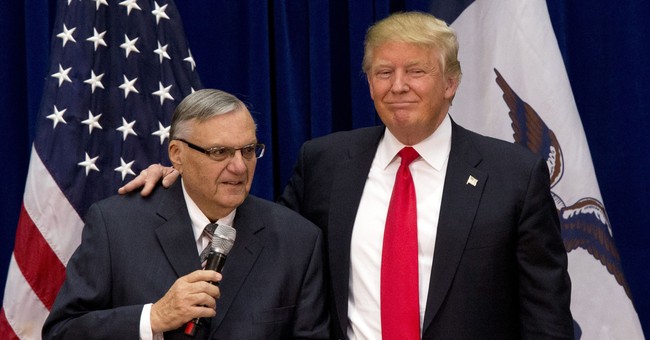
A federal judge denied former Maricopa County Sheriff Joe Arpaio’s attempt to clear his record of criminal contempt of court charges following President Trump’s pardon.
Judge Susan Bolton said that while the pardon spared Arpaio from any possible punishment from the conviction, it did not exonerate him from the crime he was found guilty of.
Arpaio’s maximum possible sentence was six months. However, legal analysts noted Arpaio’s lack of any prior convictions would likely have resulted in no jail time.
But, whatever. Trump decided to circumvent the judicial system early in his presidency to spare a favorite figure of his sycophantic base.
The decision marks a judicial check on the legal question of how far a pardon from the President extends.
“The power to pardon is an executive prerogative of mercy, not of judicial recordkeeping,” Bolton wrote in the decision. “To vacate all rulings in this case would run afoul of this important distinction. The Court found Defendant guilty of criminal contempt.”
The president issued the pardon, and Arpaio was spared “from any punishment that might otherwise have been imposed,” the judge wrote. “It did not, however, ‘revise the historical facts’ of this case.”
Arpaio’s attorney immediately filed another appeal.
Certainly, it is within the President of the United State’s authority to pardon whomever he pleases whenever he chooses. Trump pardoning Arpaio was hardly deserved or using the power in the manner the Founder’s intended although, clearly, they were aware it would be misused and abused.
The President’s pardoning of Arpaio was a two-fold opportunistic move to a) tickle his base and b) tick off his detractors. And it worked.













Join the conversation as a VIP Member